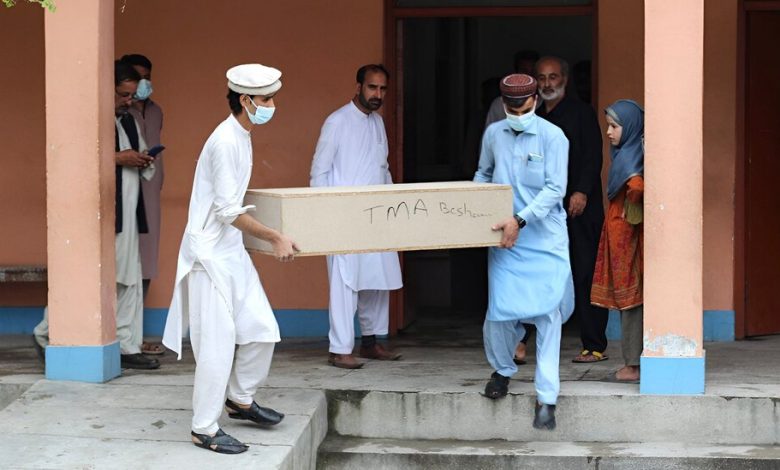As Violence Surges, Can Pakistan Protect Its Chinese Projects?

In a busy port city along Pakistan’s southwestern coast, a newly built security barrier and hundreds of new checkpoints safeguard Chinese workers.
Farther down the Arabian Sea coast, in Pakistan’s largest city, Karachi, officials added hundreds of police officers to a special unit charged with protecting Chinese-funded development projects. And in the capital, Islamabad, officials created a new police force specifically to protect Chinese nationals.
Across Pakistan, authorities are hurrying to bolster security for Chinese workers after a surge in militant violence targeting Chinese-funded megaprojects. The attacks have threatened infrastructure, energy and trade projects that have kept Pakistan’s economy afloat through a dire economic crisis.
That investment in Pakistan, which began in 2015 as part of China’s Belt and Road Initiative, involves around $60 billion of planned projects. Tens of thousands of Chinese workers are thought to be in Pakistan, though estimates vary widely. Chinese investment has proved critical since support from the United States tapered off after the war in neighboring Afghanistan ended in 2021.
The Chinese-funded projects struggled with security challenges from the start. But over the past three years, as militant groups have resurged across Pakistan and the number of terrorist attacks has soared, Chinese investments — or even just projects perceived to have some connection to China — have become increasingly vulnerable.
A series of attacks this spring highlighted that threat. In late March, armed fighters targeted the Chinese-built and operated port in Gwadar along the southwestern coast of the Arabian Sea, killing two Pakistani security officers. Days later, militants attacked the country’s second-largest air base, citing opposition to Chinese investment to extract the region’s resources.